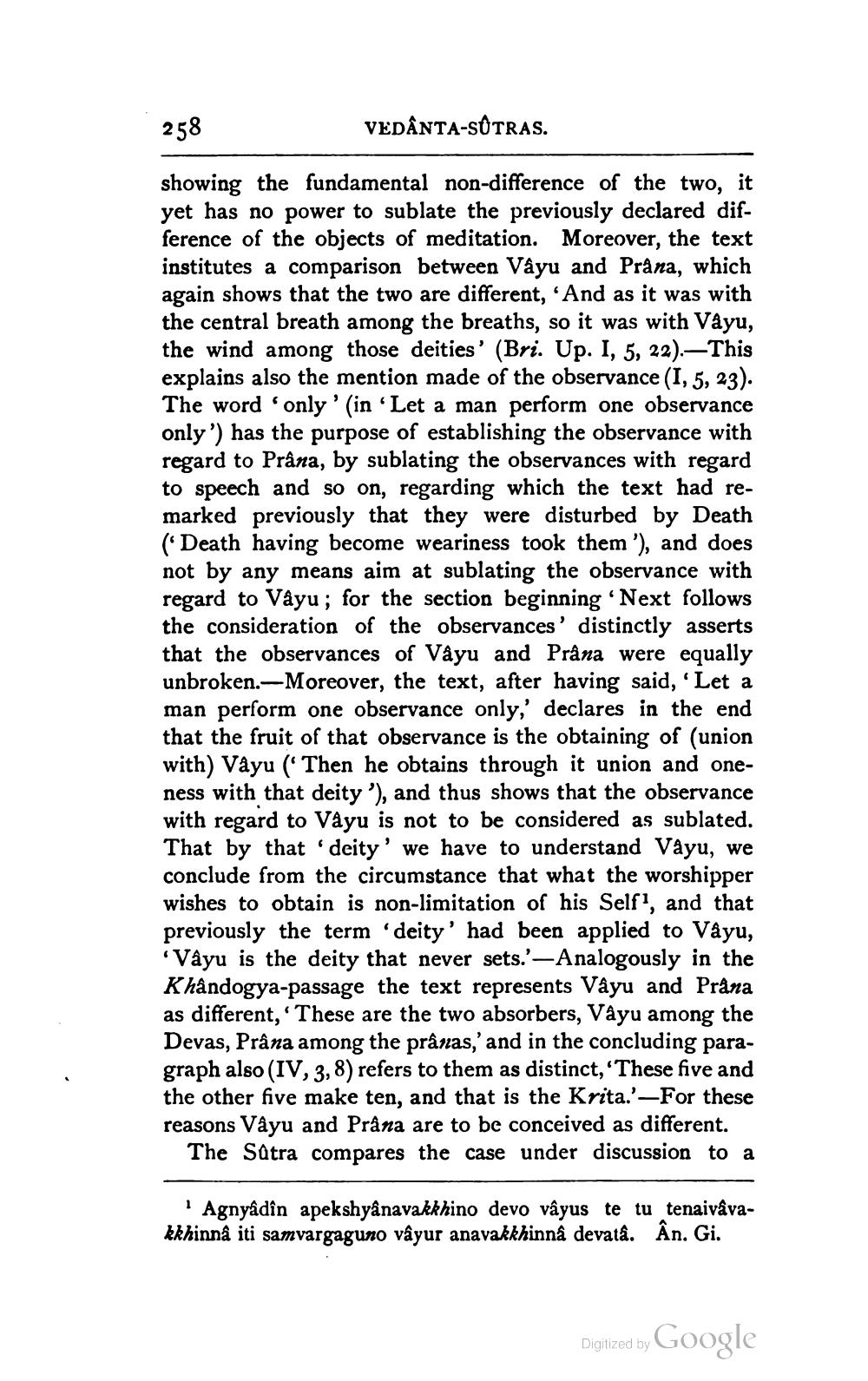________________
258
VEDÂNTA-SÛTRAS.
showing the fundamental non-difference of the two, it yet has no power to sublate the previously declared difference of the objects of meditation. Moreover, the text institutes a comparison between Vayu and Prana, which again shows that the two are different, 'And as it was with the central breath among the breaths, so it was with Vayu, the wind among those deities' (Bri. Up. I, 5, 22).—This explains also the mention made of the observance (1, 5, 23). The word 'only' (in 'Let a man perform one observance only') has the purpose of establishing the observance with regard to Prâna, by sublating the observances with regard to speech and so on, regarding which the text had remarked previously that they were disturbed by Death (Death having become weariness took them '), and does not by any means aim at sublating the observance with regard to Vayu; for the section beginning 'Next follows the consideration of the observances' distinctly asserts that the observances of Vayu and Prâna were equally unbroken.-Moreover, the text, after having said, 'Let a man perform one observance only,' declares in the end that the fruit of that observance is the obtaining of (union with) Vayu (Then he obtains through it union and oneness with that deity'), and thus shows that the observance with regard to Vayu is not to be considered as sublated. That by that 'deity' we have to understand Vayu, we conclude from the circumstance that what the worshipper wishes to obtain is non-limitation of his Self', and that previously the term 'deity' had been applied to Vayu,
Váyu is the deity that never sets.'-Analogously in the Khândogya-passage the text represents Vayu and Präna as different, These are the two absorbers, Vayu among the Devas, Prâna among the prânas,' and in the concluding paragraph also (IV, 3,8) refers to them as distinct,'These five and the other five make ten, and that is the Krita.'—For these reasons Vayu and Prâna are to be conceived as different.
The Satra compares the case under discussion to a
| Agnyâdîn apekshyânavakkhino devo vâyus te tu tenaivåvakkhinnâ iti samvargaguno vâyur anavakkhinna devata. Ân. Gi.
Digitized by
Digilzed by Google




